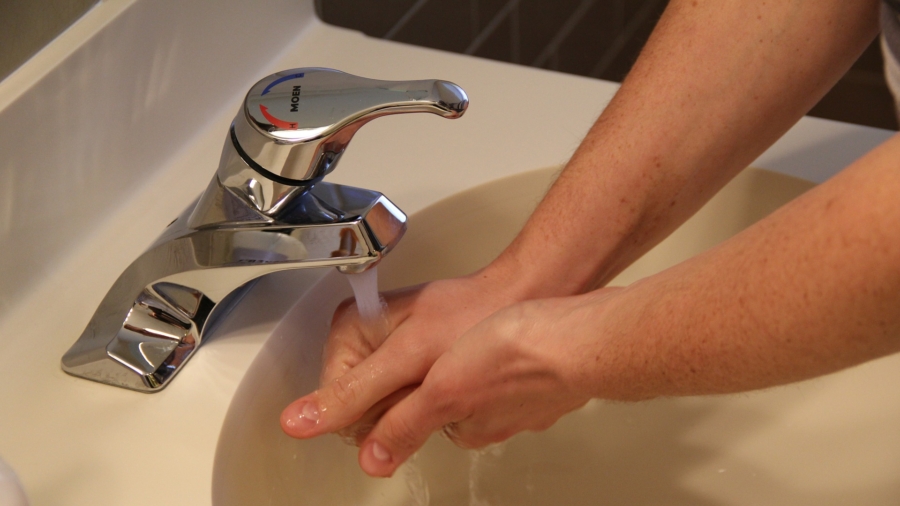Infectious diseases are commonly caused by raw food, but new regulations on produce did not reduce the reported illnesses. Instead, experts found an increase in E.coli bacteria.
A professor at the University of East Anglia, England, found out that the potentially fatal bacterium is likely transmitted via human fecal particles.
“Here—in the case of ESBL-E.coli—it’s much more important to wash your hands after going to the toilet,” said the University of East Anglia Professor David Livermore. His study is published in The Lancet Infectious Diseases journal.
Bacterial illnesses are a major health concern in the United States, and foodborne illnesses are on the rise. According to the 2018 study by The Centers for Disease Control and Prevention (CDC), there were 25,606 food-related infections, 5,893 hospitalizations, 120 deaths, and 23 known outbreaks.
In hopes of reducing illness, experts had hoped new regulations on food would reduce bacterial outbreaks, the NY Post reported. But E.coli cases were up from previous years with 2,925 cases.
E.coli is a type of bacteria that generally lives in the intestines of humans and animals. Most are harmless, but some strains can cause diarrhea, vomiting, cramps, urinary tract infections, blood infections, kidney failure, and more.
One type of E. coli bacteria that is particularly hard to treat is Extended-Spectrum Beta-Lactamase (ESBL) producing E.coli; researchers point out.
“Infections caused by ESBL-E.coli bacteria are difficult to treat. And they are becoming more common in both the community and hospitals,” Livermore told the New York Post.
According to the CDC, ESBL enzymes break down and destroy some commonly used antibiotics making these drugs ineffective for treating infections. That reduces antibiotic options available to treat ESBL producing E.coli infections.
To find out how the bacteria is transmitted, Livermore and his colleagues in the U.K. tested samples of beef, pork, and chicken. They analyzed those results against samples of human feces.
The study showed that strains between human samples were similar but different from animals’, indicating that ESBL-E primarily spreads from human-to-human.
Furthermore, the study found that the potentially fatal bacterium’s likely route is through human fecal particles, which generally spreads through poor bathroom hygiene.
“Here—in the case of ESBL-E.coli—it’s much more important to wash your hands after going to the toilet,” Livermore told NY Post.
The recommended handwashing technique involves using soap and scrub hands for a minimum of 20 seconds.
But according to the 2017 survey, 84 percent of 2,000 people reported that they don’t scrub their hands with soap and water, and 21 percent of the people did not wash their hands after leaving the bathroom.


